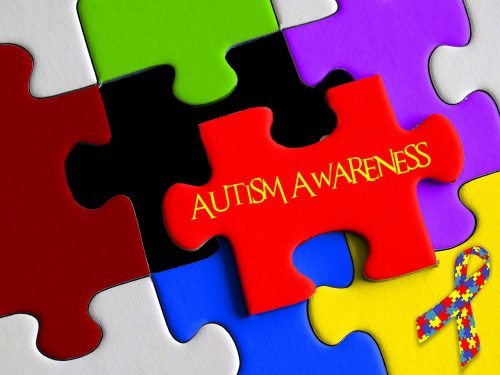Not many people know that there are older adults who have Autism Spectrum Disorder (ASD) yet remain undiagnosed. Why? Because they only learned about ASD when they reached adulthood. Currently, the awareness of the condition has increased, leading to more older adults with autism to come forward and be appropriately evaluated. Further, those who are high functioning are not very easy to identify even by their loved ones, as they have symptoms that are not clear and identifiable to autism alone.

If you know someone with autism, then you are aware that ASD often presents with other accompanying conditions and illnesses, and people with ASD have specific needs that should be met in their lifespan. This is why their condition must be diagnosed and recognized. Getting diagnosed is the most important step in providing them with support and services that the community can offer them.
Commonly Seen Signs And Symptoms of Older Adult Autism
If you suspect that you or someone you know might be on the spectrum, watch out for these signs. What you have may be mild or high functioning autism, which is why it is difficult to identify. If you have some or all of the symptoms listed below, it may be suggestive of autism. Do visit your primary physician and let him know about your doubts.
Interests Are Extreme Or Constrained

People with ASD often have a few things that they will show very strong or ironically restricted interest in. For example, if they’ve lately chosen gardening as their new favorite hobby, there will be times when they can’t stop talking about it and doing it every day, and they become stressed if they don’t get to do it when they want to. They can also search for information about going on a cruise, for instance, and they can spend hours on the computer and locked in their room, oblivious of the outside world.
Avoiding Or Abnormal Social Interaction Skills
One of the criteria of ASD as per the DSM-5 is that it presents with a lack of social interaction and communication skills. This may present as an avoidance to socialize with others or a difficulty understanding the unspoken norms in engaging in conversations. For instance, the individual with ASD may hide in his room when there are other people around, or he may talk too much and even overlap those who are talking. When those with ASD notice this, they tend to avoid social interaction in hopes that he may not embarrass himself. “You can increase your confidence and energy, reduce disorganized thoughts, and even become more involved in social activities,” reminds Jacqueline Simon Gunn, PsyD, a New York City psychologist.

Continuing Anxiety And Depression
These two are among the most common mental health issues that accompany ASD in older adults. Others also include ADHD and schizophrenia. “When people think about attention deficit disorder (ADHD), they usually consider it a childhood problem. However, a large proportion — between 30 and 70 percent — of children with the condition remain affected throughout adulthood.” Ben Martin, Psy.D also added.
Lactose Intolerance
Many individuals with ASD and families with autistic members have reported that indeed they present with lactose intolerance, GI tract problems, and other enzyme deficiencies. Though ASD is heterogeneous in character, meaning that no two cases are the same, most of them commonly complain of these problems.
Abnormal Eye Contact
They make very little to no eye contact when they talk to someone. On the other hand, when they do look at someone, they may do too much eye contact to the point that they stare at the other person that he is talking to.
If You Or Someone You Know Have It…
“Securing assessment and treatment is even more frustrating for adults with ASD, their families and medical and developmental disabilities agencies. The shortage extends across multiple disciplines but the dearth of psychologists is especially striking given the multiple roles our discipline can fulfill.” Teresa Bolick, Ph.D. said. Specialists suggest that if you suspect you are a high functioning autistic (or you know someone who is), consider taking the empathy quotient and the autism spectrum quotient tests. If your scores indicate that you do have autistic qualities, then consult your primary physician or other medical professionals that can attend to your situation. Do not hesitate to do so, as it is never too late to have yourself evaluated and helped.
